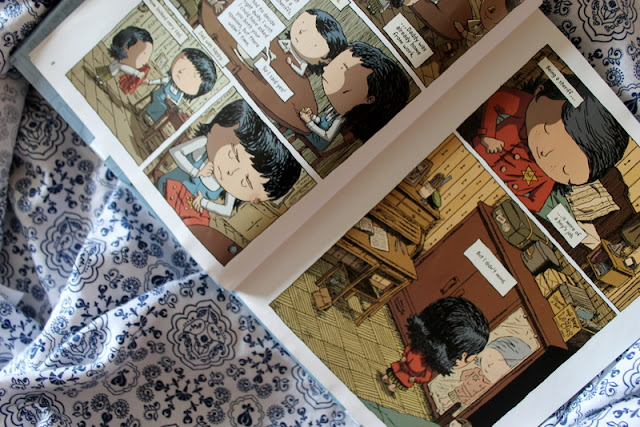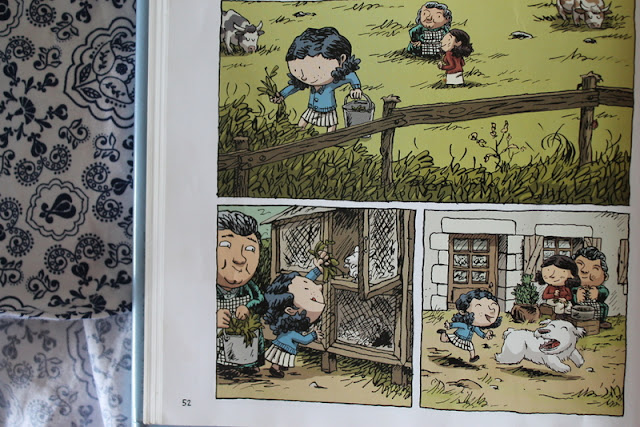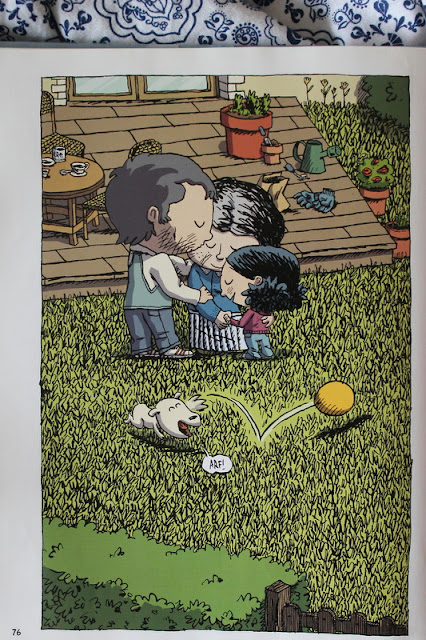As soon as I saw this book, I knew I would love it. I have an unreasonable delight in personified foxes. Plus, it vaguely reminded me of the Fern Hollow Books I read as a kid. Nostalgia. It is pretty hard to beat.
Evan and his dog.
This won a Caldecott Honor this week.
They were the best of friends
Doing everything together.
But especially gardening.
Evan and his dog spent a great deal of time in the garden.
And then.... the unthinkable happened. His dog died.
For days, Evan did nothing. Then, he destroyed his garden--that reminder of his dog and indicator of life moving on when Evan's world had ground to a halt.
Weeds grew. And Evan took care of them because these weeds reflected his feelings better than pretty, tidy plants.
Soon his garden was a desolate, soulless place, just how he wanted it.
But when a green vine sneaks in, Evan decides to let it stay.
See the hoe about to chop it out? Love that detail.
That vine turns into a pumpkin....
...that turns into a trip to the fair.
When his pumpkin places third, he has the choose of $10 or a puppy. He takes the $10 of course.
But.....
....somehow, the puppy heads home with him anyway.
A story of hope and love. Of death and life going on.
AND of the importance of gardening in living a happy life and healing.
Gardens and dogs are important.
Red vintage pickups don't hurt either.





















































